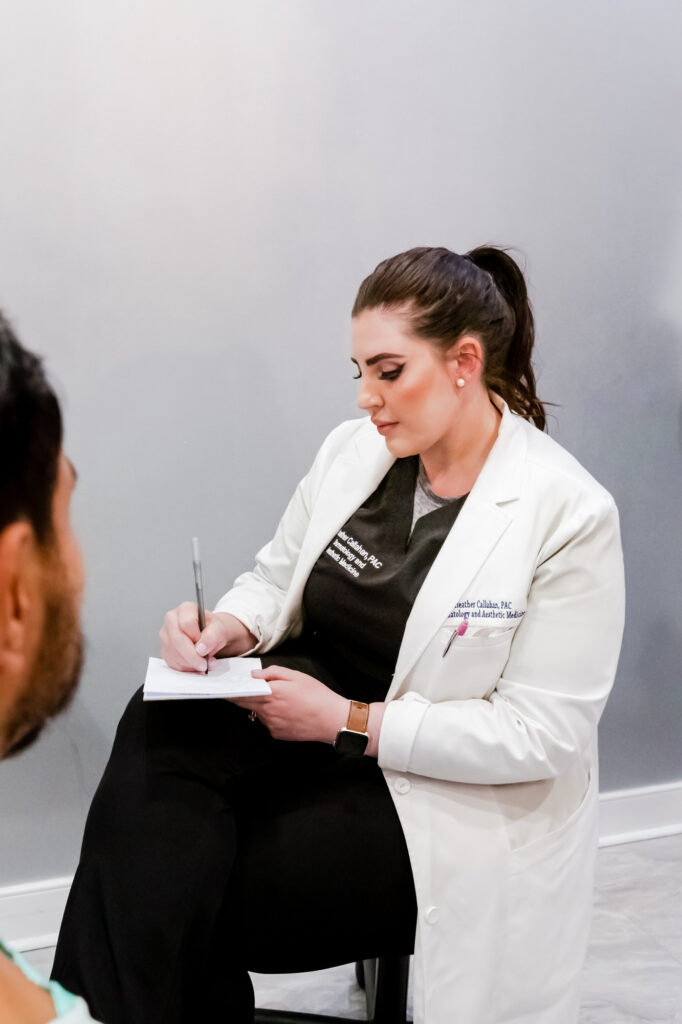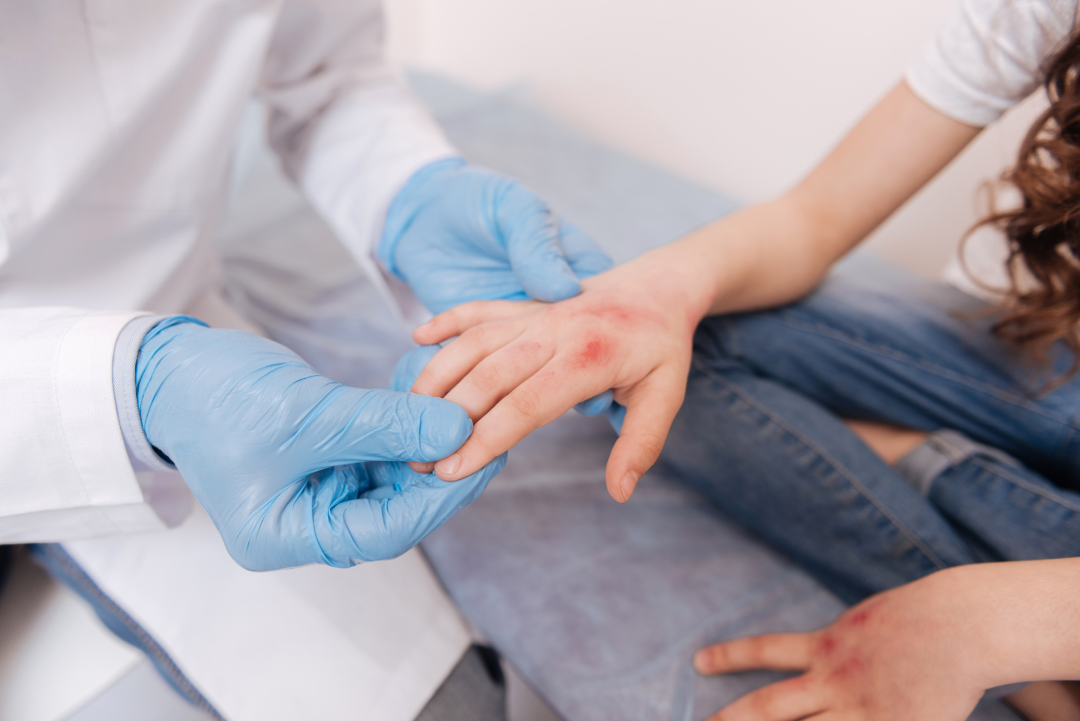Understanding Allergies
Allergies occur when your immune system reacts to harmless substances such as pollen, dust, or certain chemicals. These triggers, known as allergens, can cause symptoms ranging from mild irritation to severe reactions. At Dermestetics in Vienna, VA, we offer comprehensive care to identify and manage allergies, helping you experience relief and an enhanced quality of life.
Types of Allergies
Contact Allergies:
Contact allergies occur when your skin reacts to allergens like metals, fragrances, or chemicals. Symptoms involve redness, itching, and sometimes blistering.
Common triggers:
- Nickel
- Fragrances in personal care products
- Certain fabrics or dyes
Dust Allergies :
Dust mites, pet dander, and mold are common indoor allergens. Symptoms include sneezing, runny nose, and watery eyes, often worsening in enclosed spaces.
Food Allergies :
Certain foods can trigger allergic reactions, with symptoms ranging from mild hives to severe responses like anaphylaxis.
Common culprits:
- Nuts
- Shellfish
- Dairy
Seasonal Allergies (Hay Fever):
Pollen and other outdoor allergens can cause sneezing, nasal congestion, and itchy eyes, peaking during spring and fall.
Animal Allergies:
Reactions to proteins found in animal dander, saliva, or urine often lead to sneezing, nasal congestion, and itchy skin.

Patch Testing for Allergies
Patch testing is a diagnostic procedure to identify specific allergens causing contact allergies. Small amounts of potential allergens are applied to your skin during this test. These patches remain in place for 48 hours, and our team will analyze the results to accurately identify triggers.


Why Patch Testing is Important

How We Treat Allergies
How We Treat Allergies
Step 1: Comprehensive Consultation
- Review of your medical history and symptoms
- Detailed discussion of potential triggers
- Physical examination to assess affected areas
Step 2: Diagnostic Testing
- Patch Testing: Focused on contact allergens
- Skin Prick Testing: Identifies food and environmental allergens
Step 3: Personalized Treatment Plan
Based on your test results, we offer:
- Avoidance Strategies: Practical advice to minimize allergen exposure
- Topical Medications: Corticosteroid creams or antihistamines to reduce itching and inflammation
- Oral Medications: Antihistamines or decongestants for systemic relief
- Immunotherapy: Allergy shots or sublingual tablets for long-term relief from environmental allergens
Complementary Treatments
To enhance allergy management, we provide:
- Medical-Grade Skincare Products: For sensitive skin prone to reactions
- Air Purification Advice: Recommendations to reduce indoor allergens like dust and pet dander
- Stress Management Counseling: Helps address stress-related flare-ups
- Nutritional Guidance: Identifying foods that may trigger or worsen symptoms
Preventive Tips for Allergy Relief
- Minimize Exposure: Use allergen-proof bedding and close windows during high pollen seasons.
- Skin Protection: Choose fragrance-free and hypoallergenic skincare products.
- Regular Cleaning: Vacuum and dust your home often to eliminate allergens.
- Maintain Humidity Levels: Use a dehumidifier to reduce mold growth.
- Track Symptoms: Keep a record of allergy patterns to better understand triggers.
Get Started
Ready to identify and manage your allergies?

















